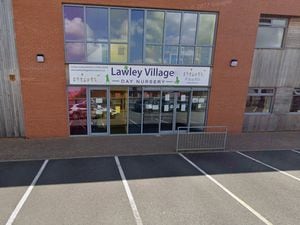'I think I am going to die': Accidental overdose ruling on Shrewsbury diet pills woman Eloise Parry
Shrewsbury student Eloise Parry sent a text message saying she knew she was going to die after taking toxic "slimming pills" and driving herself to hospital, an inquest has heard.

Miss Parry, 21, apologised to her university lecturer for "being so stupid" in the heart-breaking message, sent around four hours before her death.
An inquest in Shrewsbury was told Miss Parry, who had a history of bulimia, died after taking eight unlicensed tablets containing dinitrophenol (DNP), which she bought on-line.
Shropshire Coroner John Ellery, who ruled that the death was accidental, said he would be writing to the Government urging a review of the classification of DNP, which is marketed on-line as a "fat burning" pill.
Miss Parry's mother, Fiona Parry, her younger sister Rebecca, and four other family members attended the hearing at Shropshire's Shirehall.
In the text message, read to the court by Detective Sergeant Andy Chatting, Miss Parry said: "I screwed up big time."

In the text message, read to the court by Detective Sergeant Andy Chatting, Miss Parry said: "I screwed up big time. Binged/purged all night and took four pills at 4am.
"I took another four when I woke and I started vomiting soon after. I think I am going to die.
"No one is known to survive if they vomit after taking DNP. I am so scared."
The message, sent at 11.31am to a lecturer and tutors at Glyndwr University in Wrexham, where Miss Parry was on course for a first class degree in childhood and family studies, continued: "I am so sorry for being so stupid.
"Thank you for everything. I never deserved it. Please pass on my absolute appreciation for all that you have done for me.
"Thank you more than words. Ella."
The student, who lived at a flat in Shrewsbury, died at around 3.25pm after being admitted to the Royal Shrewsbury Hospital's accident and emergency department at 9.56am on April 12 this year.
Recording his conclusions, Mr Ellery said DNP was clearly a dangerous and toxic substance which should not be accessible to people seeking non-prescribed medication.
"I am entirely satisfied that there is no evidence that (Miss Parry took the tablets) with the intention to kill herself.
"What is clear is that when took the dinitrophenol, she did it in relation to her eating disorder and her death was an accidental consequence."
A police investigation is continuing to establish who supplied the tablets, which may have originated in Europe or Canada.
The inquest heard that Miss Parry used PayPal to buy a quantity of DNP on April 4 and ordered a second batch at 6.14am on the day of her death.
The inquest heard that a website marketing DNP - an industrial chemical historically used in explosives, dyes and fungicides - had been closed down but "popped up again in an almost identical format" hours later.
Mr Ellery said he intended to write to the Government, telling Miss Parry's family: "This is something I am going to raise with the appropriate minister.
"This is clearly a dangerous, toxic and fatal substance which should not be accessible, certainly not to persons seeking unlicensed non-prescribed medication.
"I am satisfied and endorse the actions taken by the police and the multi-agencies - they are actively pursuing this on a national and international basis.
"I (will) write simply to give additional weight to that. It is for the minister to consider whether dinitrophenol should be a classified substance."
The coroner stressed that he was not advising the Government on how to act but wished to draw the circumstances of the death to the attention of the relevant ministers.

DNP, which is also available as a powder, is not a controlled substance despite being linked to several previous deaths in the UK and overseas.
The industrial chemical, which is unfit for human consumption, was the subject of an Interpol warning notice issued to 190 countries in May.
In a statement read to the inquest, a friend of Miss Parry, Jade Andrews, said the student had suffered from psychological issues and depression.
Miss Parry had complained of leg pain from muscle deterioration caused by DNP and told Ms Andrews the substance was addictive and dangerous.
Mr Chatting, of West Mercia Police, told the coroner that after buying a quantity of DNP, Miss Parry visited websites which highlighted its dangers.
The officer added: "I have seen some evidence suggesting that Eloise thought the supplier was from Germany.
"I have information to suggest the supplier is elsewhere in Europe and other information suggesting the source may be in Canada.
"The Food Standards Agency are involved in this investigation, which is ongoing, and there is also involvement from Interpol and partners in the United States.
"Action is being taken to try to prevent these sites operating."
Her GP, Dr Carla Ingram, said that while Eloise was not addicted to DNP she had "no apparent ability" to stop taking the pills and was was "obsessed with the desire and need to lose weight".

Eloise's mother, Fiona Parry, her younger sister Rebecca, and four other family members attended the hearing at Shirehall.
Her mother told the inquest she did not believe her daughter was suicidal. She said she was aware her daughter "had issues with bulimia and had prescription medication".
But she said she was not aware that Eloise was self-prescribing.
Outside the hearing, Mrs Parry said: " She weighed the pro and cons and made the wrong choice. It cost her her life."
'Looking good should never cost you your life' - read Fiona Parry's full statement here
After the inquest, West Mercia Police Detective Inspector Jonathan Matthews said: "We are working closely with various partner agencies such as the Food Standards Agency and Interpol who have both issued warnings to highlight the dangers of taking DNP following Eloise's tragic death.
"In conjunction with the Food Standards Agency and Public Health England we would like to reiterate to the public the dangers of ingesting this substance.
"DNP is a very dangerous substance, it is a highly toxic industrial chemical and its consumption can quickly lead to serious medical implications and death."
Anyone with concerns about particular websites offering DNP for human consumption is asked to report this to their local authority or the Food Standards Agency's National Food Crime Unit by emailing foodfraud@foodstandards.gsi.gov.uk





